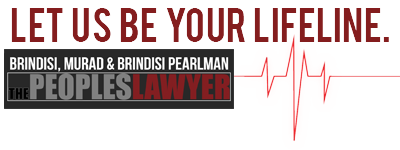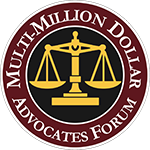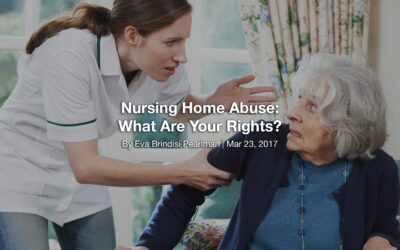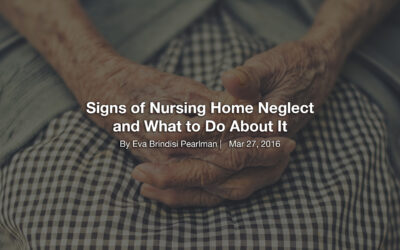The 2010 census reported that over 13% of the population in the United States is over the age of 65. This number is expected to rise in the next 40 years. With the amount of elderly being so high, many need cared for, including in nursing homes and assisted living facilities. The amount of elderly individuals is also reflected by short-staffing in nursing homes, with more people needing care than there are actual caregivers. This may potentially lead to nursing home negligence.
Difference Between Nursing Home Neglect and Abuse
Many do not understand there is a difference between nursing home abuse and neglect. Neglect comes from improper care due to missing illnesses or injuries, not giving patients proper medication or nutrition, or not following set procedures when it comes to caring for a patient. Neglect also includes the environment in which the patient is in, keeping it clean and livable. Abuse, rather, is caused by someone who intends to inflict pain or is neglectful with malicious intent. Examples of this could be using restraints for an extended period of time, not letting patients use the restroom, or direct physical or sexual abuse. You can learn more about the signs of abuse and neglect in one of our earlier blog posts.
What Rights Do Nursing Home Residents Have?
Nursing homes have a duty of care to avoid patient injuries. In New York State, the Department of Health has a list of specific rights that must be followed in a nursing home. You can learn more about patient rights of nursing home residents in our previous blog post on this topic.
Common Causes of Nursing Home Neglect
Nursing home neglect mainly comes down to the quality of care within the nursing home. Understaffing is a top cause for nursing home negligence. Not having enough staff to be able to care for and check on patients as well as keep the facility clean can lead to poor living conditions, patient injuries, illnesses, or even death. Nurses are often overworked and may miss health issues of a patient while rushing through their time with them. They may also take short cuts when it comes to patient care, including not following proper fall prevention procedures, which may lead to an injury. Understaffing may also lead to improper training of nurses, which can lead to inadequate care for patients as well.
5 Ways You Can Prevent Nursing Home Negligence
When placing your loved one in a nursing home, you may have feelings of helplessness because you cannot provide for their specific needs and must rely on nursing home or assisted living care. However, just because they are not living with you does not mean you cannot look out for their well-being. Here are five ways you can prevent nursing home abuse and neglect…
- Utilize advanced planning – Before entering the nursing home, record detailed wishes of the resident if they are ever unable to express them. Examples of this would be health care proxies, living wills or any religious objections to medical treatment.
- Visit as often as possible – While life seems to frequently get in the way, visiting your loved one and asking about their care will help prevent neglect and abuse. If you cannot visit, a simple phone call is a good way to check on your loved one.
- During your visits, keep a journal – Keep a log of your visits and record any illnesses or injuries to look back on, if necessary.
- Discuss the nursing home’s fall prevention procedure – Falls are the leading cause of injury and death in adults over the age of 65. Discuss the fall prevention plan set in place by the nursing home and inform your loved one’s nurse of any of their habits that could help them care for him or her.
- Request weekly reports of your loved one’s health – Speak with your family member’s nurse or manager and request weekly reports of any injuries, illnesses, or check-ups.
What to Do If You Suspect Nursing Home Neglect
If you suspect nursing home neglect or nursing home abuse, there are a variety of steps you can take to stop the behavior. Record observations of any injuries of your loved one or changes in their behavior. Take photos, if possible, of any signs of lacerations, bruising, inadequate skincare, etc. Next, speak with a manager at the nursing home or assisted living facility. Express your concerns of neglect or abuse. If their response is unsatisfactory, you may want to report the abuse to Adult Protective Services. The final step would be to contact a nursing home neglect lawyer who will be able to further explain the actions to take to represent your loved one against the facility in a potential nursing home lawsuit.
If your loved one has been abused or neglected as a result of nursing home negligence, you may be entitled to substantial compensation. When we put our families in a nursing home, we want and expect the best care possible for our loved ones in need. Brindisi, Murad, Brindisi and Pearlman are nursing home neglect lawyers ready to fight for those who cannot. We are The People’s Lawyer and we have the experience, knowledge, and compassion needed in nursing home negligence cases to represent you. Contact our office for free legal advice on nursing home litigation today.
Share this blog with your friends…
Tags: Nursing Home Negligence

CONTACT US FOR A FREE CASE EVALUATION
Related Blogs
Nursing Home Abuse: What Are Your Rights?
As your loved ones’ age, some may have to be admitted to a nursing home. In fact, 40 percent of adults in the United States will enter a nursing home at some point in their lives. You want and expect the best care for your aging family member, but what happens...
Signs of Nursing Home Neglect and What to Do About It
Nearly two million Americans reside in long-term care facilities, or nursing homes as they have come to be known. When a loved one lives in a long-term care facility, it is normal to feel concerned about their treatment. Federal nursing home laws state that the...
Injured In An Accident?
Contact BMBP Today!






BRINDISI, MURAD & BRINDISI PEARLMAN
UTICA OFFICE
Utica, NY 13501
OFFICE HOURS
MONDAY – FRIDAY
9AM-5PM

